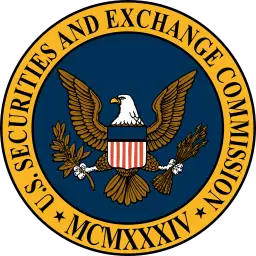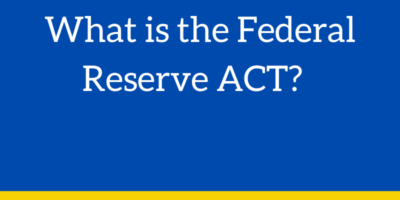What is The U.S. Securities and Exchange Commission?

Get the basics of what the U.S. The Securities and Exchange Commission is and its role in trading. Learn how they protect investors, ensure fair markets, and enforce securities law with this comprehensive guide!
What is The U.S. Securities and Exchange Commission?
The U.S. Securities and Exchange Commission (SEC) is a federal agency responsible for enforcing federal securities laws and protecting investors. The SEC oversees the trading of stocks, bonds, mutual funds, and other securities to promote fairness and maintain integrity in the markets. By doing so, they work to protect investors from fraud or manipulation by regulating public companies as well as Brokers, Advisors, Market Makers, and other intermediaries in the financial industry.
How Does The SEC Protect Investors?
The SEC works to ensure that investors have access to meaningful and accurate financial information to make informed decisions. This includes requiring public companies to disclose certain financial information such as a description of the business, risk factors, audited financial statements, executive compensation, and more. The SEC also requires registered brokers and advisors to disclose potential conflicts of interest, as well as provide clients with specific consumer protections. In addition, they monitor trading activities on the exchanges to ensure all regulations are followed.
What is the Role of the SEC in Regulating Markets and Trading?
The SEC plays an important role in regulating markets and trading. This includes overseeing the activities of brokers, advisors, traders, and other entities to ensure that all laws are followed. They also have the authority to block or suspend trading if there is evidence of market manipulation or abuse. The SEC works to protect investors by monitoring the accuracy of financial statements and disclosure documents that public companies must provide, as well as investigating cases of fraud. The SEC can also take enforcement actions against regulated entities that commit securities law violations.
What Laws Does The U.S. Securities and Exchange Commission Enforce?
The SEC enforces several key laws, including the Securities Act of 1933 and the Securities Exchange Act of 1934. These laws have helped to create a fair playing field for all investors by providing disclosure requirements so investors can make informed decisions about trading. The SEC also works to protect investors from fraud, manipulation, and other forms of deceptive investment practices. The SEC has expansive enforcement powers and can impose various sanctions on entities that violate securities law, including fines, suspension or even revoking a registration.
The U.S. Securities and Exchange Commission is Made Up of the Following 5 Divisions
- Corporate Finance: It is the division that is responsible for overseeing public companies and operating EDGAR.
- Trading and Markets: It is the division that oversees Self-Regulatory Organizations such as FINRA, MRSB, Investment houses, and all Broker-dealer firms.
- Investment Management: It is the division that oversees Investment companies as well as Investment advisors, and mutual funds.
- Enforcement: It is the division that oversees and investigates violators who violate securities and regulations laws and bring legal action against them.
- Economic and Risk Analysis: Also known as DERA Is the division involved in the whole spectrum of the SEC dealing with policy-making, rule-making, enforcement, and examination.
Guidelines for Issuing Initial Public Offerings (IPOs).
When companies decide to go public, the SEC has regulations and guidelines around the process. Initial Public Offerings (IPOs) must adhere to these regulations in order to protect investors and ensure fair markets. These guidelines include providing detailed disclosure information about the company, its business operations, and its financial condition so that investors can make an informed decision. Additionally, there are restrictions on who can invest in IPOs to protect inexperienced or vulnerable investors from potential losses.
Are There Changes in the Works for the SEC and Investor Regulation?
The SEC operates constantly to review, identify and set financial regulations for the purposes of increasing investor safety, protecting against fraud, and promoting informed investment decisions. The commission has proposed a series of changes in recent years to adjust for market conditions, technology advancements, and other external factors beyond its control. These updates are intended to provide additional investor protection by creating higher standards of information disclosure from publicly traded companies, expanding access to capital markets, and strengthening enforcement procedures surrounding insider trading violations.
How Can You Learn More About the SEC?
If you’re interested in learning more about the U.S. Securities and Exchange Commission, you can attend in-person or online classes to better understand the regulations that it sets. Additionally, the SEC offers a range of helpful webinars and educational materials on topics such as investment advice, trading, and market structure. You can also follow its Twitter account here for frequent updates and information about current initiatives.


